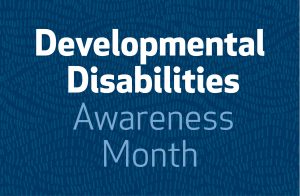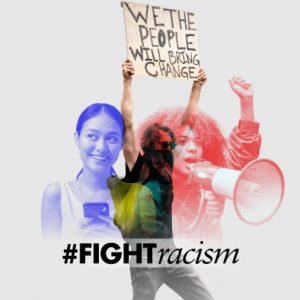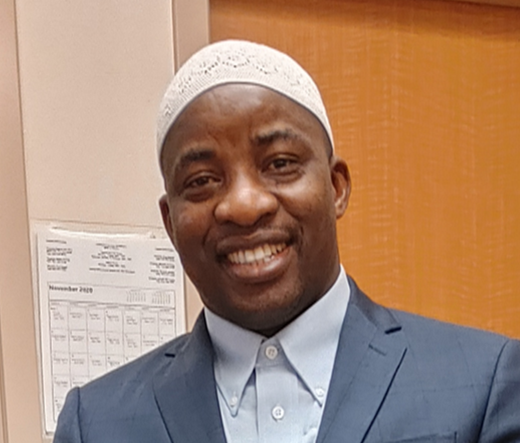Celebrating Ramadan
Ramadan, observed March 22 through April 10 this year, occurs during the ninth month of the Islamic calendar, and is observed by Muslims worldwide through fasting, prayer, personal reflection and focus on their communities.
Houston Methodist West Chaplain Ibrahim Oladeyo offers insight into the holiday and suggestions on ways you can show your respect for observant Muslim patients, guests and colleagues during the period.
“The month is celebrated as the time during which the Quran, the holy book for Muslims, was revealed.
“Self-restraint and self-reflection are cornerstones of Ramadan, and the month-long fast—typically completed by all healthy adults—is viewed as an avenue to cleanse one’s soul and empathize with the less fortunate. The fast occurs each day from dawn until sunset and includes abstaining from food, drink and sexual intercourse. Some Muslims also restrict other distractions, for example, watching television or listening to music.”
Oladeyo offers tips on how you can ensure inclusiveness and respect in the workplace for fasting Muslims during Ramadan:
•In keeping with our I CARE values, staff can greet any Muslim patient, staff and family member by saying “Ramadan Kareem” as a mark of respect and to rejoice with them during the Holy month of Ramadan.
- Leaders may consider sending an annual holiday greeting email to staff commemorating Ramadan just as they might for Christmas or Hannukah.
- If possible, staff should avoid eating or drinking in the presence of Muslims as a courtesy. Also, be cognizant of holding food-oriented meetings during Ramadan.
- Offer adequate and flexible PTO to allow Muslims to adjust to their new eating and sleeping schedules in Ramadan.
“We pray that God Almighty count us among those who will be able to fast in the Holy month of Ramadan and be rewarded abundantly. Ameen!”
ERG Hosts Professional Development Session
The Houston Methodist Young Professionals employee resource group (ERG) hosts an in-person and Zoom panel discussion titled Do’s, Don’ts & Donuts on Tuesday, March 21. Held from 9 to 10 a.m. in the Dunn Rio Grande Conference Room at HMH, topics covered during the session will include mastering appropriate verbal and written communication for navigating professional settings.
Click here to join the meeting. Meeting ID: 219 036 280 915. For more information, email YoungProfessionals@houstonmethodist.org.
LGBTQIA Health Awareness Week Discussion
In recognition of LGBTQIA Health Awareness Week (March 20-24), the LGBTQ+Allies ERG invites you to a discussion on LGBTQIA health considerations on Thursday, March 23 from 1 to 2 p.m. Held in the Walter Tower’s Columbia Conference Room at HMH. The in-person discussion will be led by Dr. Natalie Vanek, medical director at Legacy Community Health Montrose Clinic. Dr. Vanek will discuss commonly misunderstood health considerations for the LGBTQIA patients that impact health care providers, as well as providers who do not have training in direct patient care. Space is limited. Please email LGBTQ+Allies@houstonmethodist.org if interested in attending.

Developmental Disabilities Awareness Month
March’s designation as Developmental Disabilities Awareness Month is intended to increase recognition of the difficulties faced by people with impairments in learning and behavior. These disabilities include autism, attention-deficit/hyperactivity disorder (ADHD), and impairments in physical and/or intellectual functioning, such as cerebral palsy, spina bifida and Down syndrome. Established by the National Association of Councils on Developmental Disabilities (NACDD), this year’s theme, Beyond the Conversation, seeks to highlight what individuals and communities are doing to move past talking points to encourage action on improving education, employment and accessibility opportunities.

What is Neurodiversity Celebration Week?
Neurodiversity Celebration Week (March 13-19) is the centerpiece of a worldwide initiative that challenges stereotypes and misconceptions about neurological differences. It aims to transform how neurodivergent individuals—defined as people whose brain differences affect how their brain works—are perceived and supported by providing schools, universities and organizations with the opportunity to recognize the many talents and advantages that may be associated with being neurodivergent. It is a non-medical term that may apply to those diagnosed with conditions such as autism, ADHD, dyslexia, Down syndrome, Tourette syndrome, dyspraxia and more.

Unite to End Racism
The International Day for the Elimination of Racial Discrimination, established by the United Nations’ General Assembly in 1979, is observed annually on March 21, the day in 1960 when Sharpeville, South Africa police opened fire and killed 69 people at a peaceful demonstration against apartheid “pass laws.”
The impetus behind the designation was to establish a week of “solidarity with peoples struggling against racism and racial discrimination.” Click here to learn how you can join the fight against racial discrimination.

Did You Know: St. Patrick’s Day
As millions of people around the world plan to celebrate St. Patrick’s Day on March 17, which falls during March’s designation as Irish American Heritage Month, the history of the holiday is filled with curious facts, such as:
- St. Patrick’s Day began as a minor religious holiday in 1631 and until the 1970s Irish laws mandated that pubs be closed. Since the mid-‘90s, however, the Irish government began to use the passion and fervor around the day to help drive tourism and showcase Irish culture.
- St. Patrick’s Day has developed into an international holiday, with people of all backgrounds celebrating the day. In addition to the U.S. and Canada, St. Patrick’s Day is celebrated in numerous countries, including Japan, Singapore and Russia.
- The custom of eating corned beef with cabbage and potatoes during St. Patrick’s Day has its roots in the Irish potato famine of 1845-’52, when more than a million Irish emigrated to the U.S. Often discriminated against and poor, Irish Americans began eating corned beef served at neighboring Jewish butcher shops and delis because it was inexpensive.
International Day of Nowruz Observed on March 21
The spelling and pronunciation of Nowruz (pronounced No-rooz in some cultures) may vary from country to country. It translates to “new day” and marks the first day of spring and is celebrated on the day of the astronomical vernal equinox, which usually occurs on March 21.
According to the United Nations Education, Scientific and Cultural Organization (UNESCO), it is celebrated as the beginning of the new year by more than 300 million people around the world and has been observed for over 3,000 years in the Balkans, the Black Sea Basin, the Caucasus, Central Asia, the Middle East and other regions. In many cultures, the day is observed by rituals and ceremonies and enjoying a special meal of fresh, green foods with loved ones.
Is there a heritage month or day you would like for others to learn more about? Please let us know by emailing theofficeofdei@houstonmethodist.org.


Leave a Reply